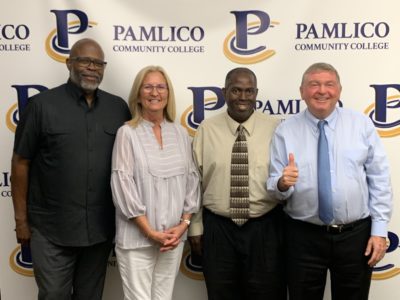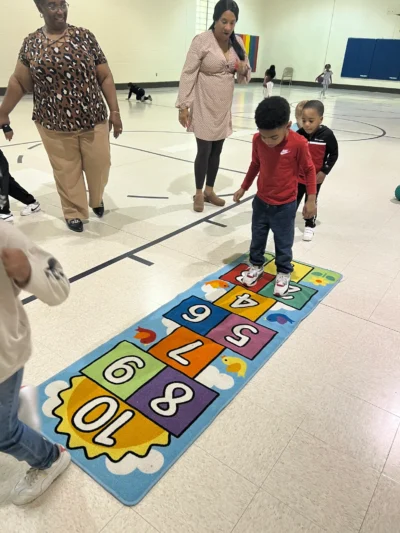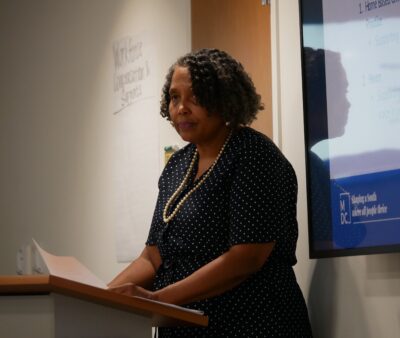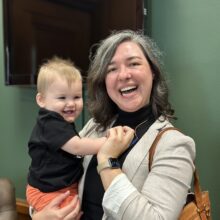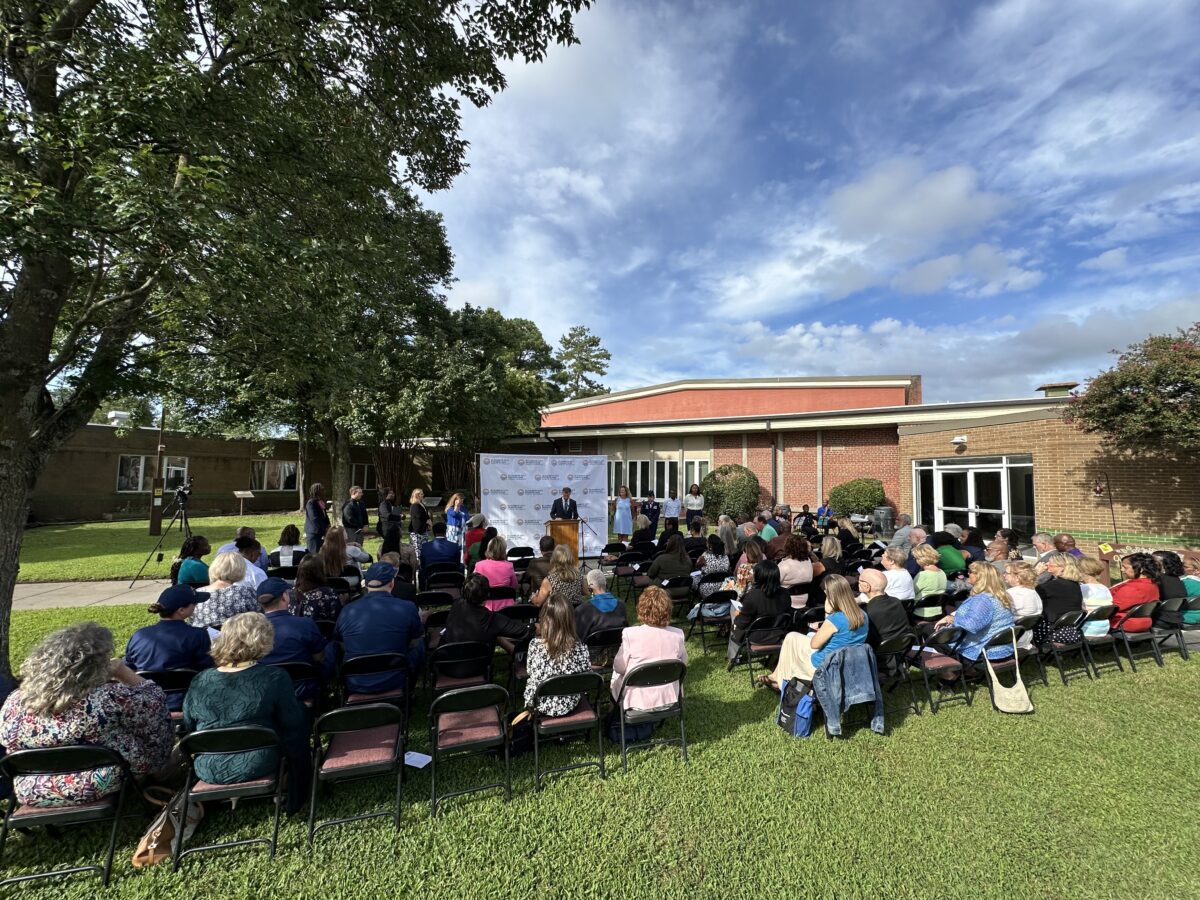
|
|
“I had an idea at about 1 o’clock last night,” Keith Parker said.
This is how Parker, superintendent of Elizabeth City-Pasquotank County Public Schools, gets lots of his ideas, according to Angela Cobb, chair of the ECPPS Board of Education.
“He’ll call me at 10 o’clock at night like, ‘Hey what do you think about da da da,’” Cobb said.
Standing in the entryway to Northeastern High School as classes began on the first day of the new school year, Parker told Cobb and her fellow school board member, Valerie Bogues, about his latest idea — to have the board make and sign posters of gratitude for each school, which they could deliver along with donuts for the school’s staffs later in the week.
“All I’m hearing is 12 posters by the board meeting tonight, that’s all I’m registering,” Cobb said with a laugh.
But she grabbed the reins, quickly recruiting Bogues for help. Within minutes they had a plan to buy posterboard, round up markers, and meet in Parker’s conference room to make posters by hand — because printing them would be “ugly,” as Cobb put it.
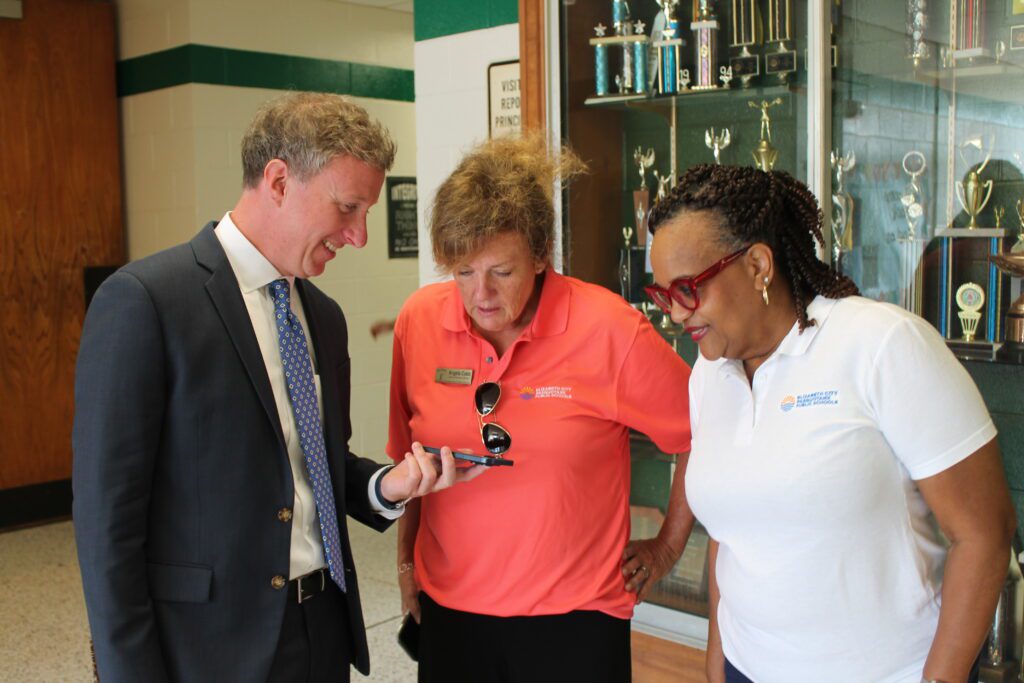
This is emblematic of how the superintendent and school board have been working together for the last two years to improve school performance, recruit students, and connect with families in this small, rural county in the northeast corner of the state.
And they’re just getting started.
![]() Sign up for Early Bird, our newsletter on all things early childhood.
Sign up for Early Bird, our newsletter on all things early childhood.
‘Momentum breeds momentum’
Parker began his tenure as superintendent by meeting with residents to learn what they thought about their schools and what they wanted for students.
Then he started making small but highly visible improvements.
“To some extent, I’ve tried to replicate Karrie Dixon’s playbook from when she went to ECSU,” Parker said.
He outlined the immediate actions Dixon took when she was hired as chancellor of Elizabeth City State University in 2018 — back when the HBCU was in danger of being shuttered.
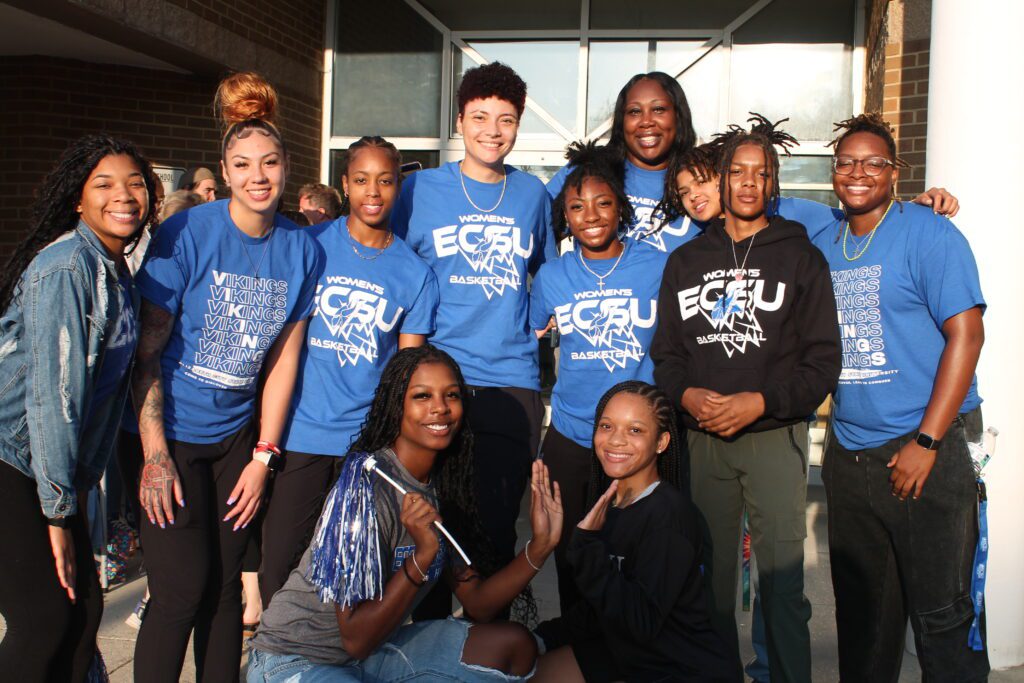
“The campus had crumbled, financially they were in ruins, the lights wouldn’t come on, the buildings leaked, and all those kinds of things,” Parker said. “She just starts painting, and doing landscaping, and just doing stuff, doing stuff, doing stuff.”
Parker said Dixon started with these simple fixes and easy wins to “send the message of: We won’t tolerate this,” which helped improve public perception of the university.
“Momentum breeds momentum,” Parker said. “And if you just keep that going, then people will buy in, because they remember what it used to be, and then they see some things they may not agree with, but they can at least say, something’s happening, we want in, let’s do this.”
Over the summer, every elementary school got a new playground, and the two schools with the most pitted and potholed parking lots — Sheep Harney Elementary and Northeastern High — got a repaving. During the upcoming school year, every school will get new, digital signs to replace faded ones.
So far, the reviews are positive.
Over a first-day lunch of pizza and pears at Central Elementary, first-graders gushed to Parker about their new slides and swings.
And having learned to drive on Northeastern’s old parking lot in 1999, I can personally attest to the improved experience of gliding smoothly onto the new blacktop 25 years later.
These are the types of visible improvements that have built momentum toward the ones that have required greater buy-in.
For example, this year is the first for ECPPS to offer Spanish immersion classes in some kindergarten and first grade classrooms at J.C. Sawyer and Northside elementary schools.
In the parking lot of J.C. Sawyer on the first day of school, a mom approached Parker, saying, “Just the person I need to see!”
Charmaine Melson-Wood had dropped off her daughter for her first day of kindergarten in one of the new Spanish immersion classrooms, and she was feeling a little unsure about the program.
“I’m so nervous,” Melson-Wood told Parker. “I’m worried about the new curriculum and how she’s supposed to learn.”
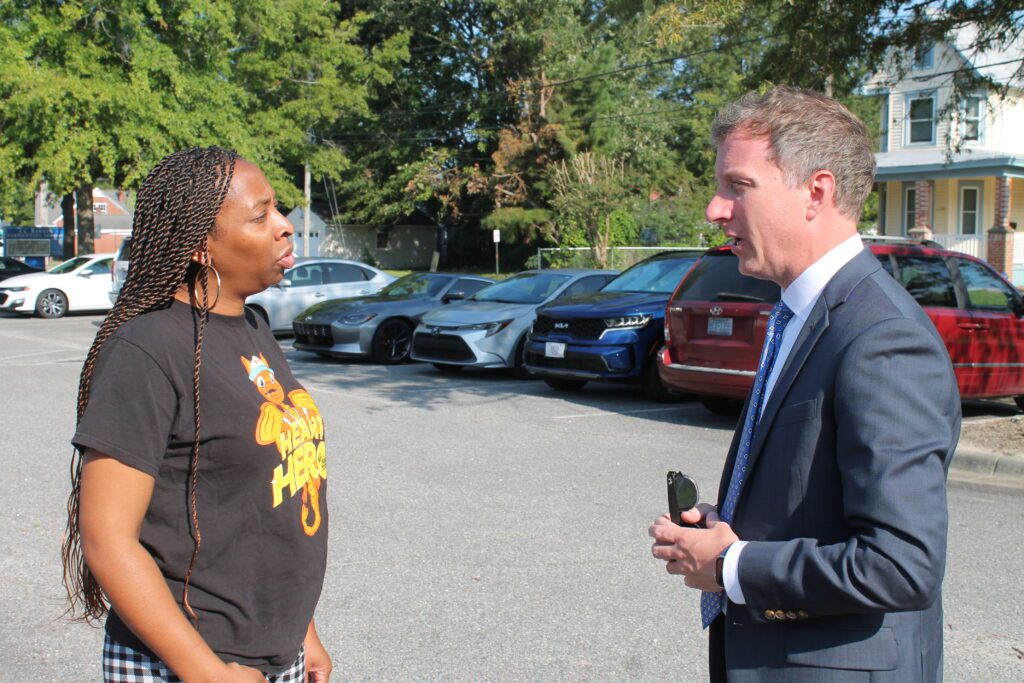
“It feels a little scary at the beginning, I know it does,” Parker said.
Then he described how students who participated in dual-language programs in their first year or two of school performed better on end-of-grade tests by third grade. He promised that her daughter would come home at the end of the day, already sharing new Spanish vocabulary. And that the best way for Melson-Wood to support her is still reading to her — in English — at home.
“OK, I trust you, Dr. Parker,” Melson-Wood said, after a deep exhale.
‘Everything’s gelling’
The community’s trust is evident across the district on the first day of school. Parents, school board members, teachers, principals, and central office staffers all point to Parker’s leadership as the piece of the puzzle that the schools had been missing until two years ago.
“Everything’s gelling,” Cobb said. “When you have all the right ingredients together and all the pieces in place, magic happens… Dr. Parker is phenomenal.”
Newly released school performance grades back that up.
As EdNC has previously reported:
School performance grades, also known as school report cards, began in 2013 when the General Assembly passed a law mandating each school be assigned a letter grade of A-F based on its performance. Since then, every public school has received an annual letter grade that is calculated based on 80% academic achievement and 20% academic growth.
Low-performing schools are schools that receive a D or an F and do not exceed the state’s growth standards. Schools identified as low-performing are then required to come up with a school improvement plan, although that status does not guarantee extra funding from the state or extra support from the Department of Public Instruction.
In 2022, five of seven ECPPS elementary schools were designated as low performing. Now none are, and all have performance grades of C or higher.
That includes P.W. Moore and Sheep Harney, both of which increased their performance grades from F to C, and met or exceeded growth over the last two years.
Of ECPPS’s eight so-called low-performing schools in 2022, just two retain that designation today.
Since 2022, ECPPS decreased the number of schools with a performance grade of D from eight to three. And those three schools are each just a few points away from a C this year.
Related reading
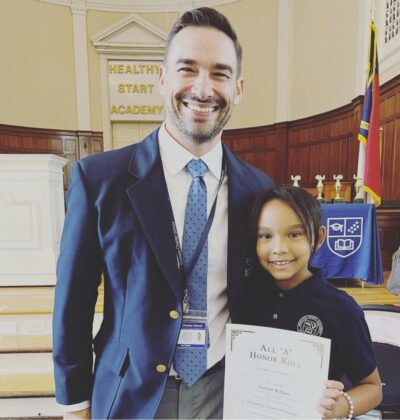

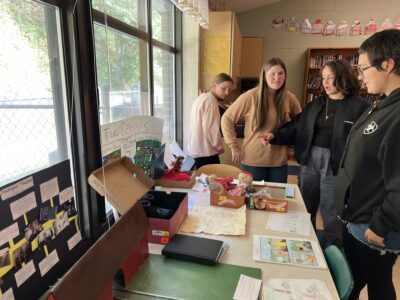
In 2024, Elizabeth City-Pasquotank Early College became the first school in the district to earn an A performance grade under the current accountability model.
Parker credits the district’s staff, students, and their families with this academic achievement, but singled out the role of school leadership teams in a statement to EdNC:
In my view, the core of school transformation lies in effective school leadership… Effective principals set the tone for achievement in their building and allow great teachers to do what they do best — ensure students grow academically each year. It has been amazing to witness the exemplary school leaders and educators in ECPPS spearheading significant advancements in academic achievement.
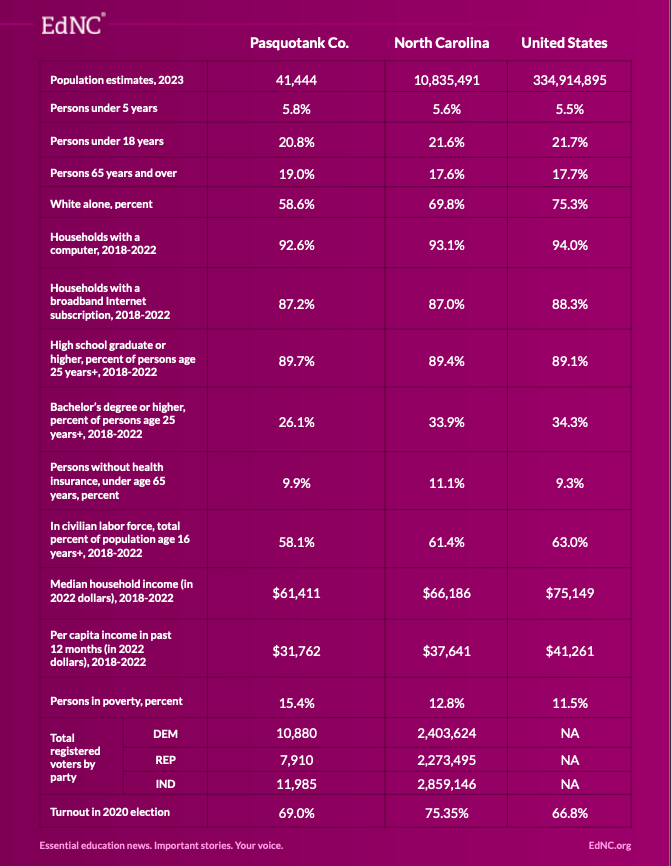
Coming together for schools
By noon on the first day of school, Cobb had texted Parker pictures of herself and Bogues in a room full of completed posters. They’d pulled off his late-night idea with six hours to spare.
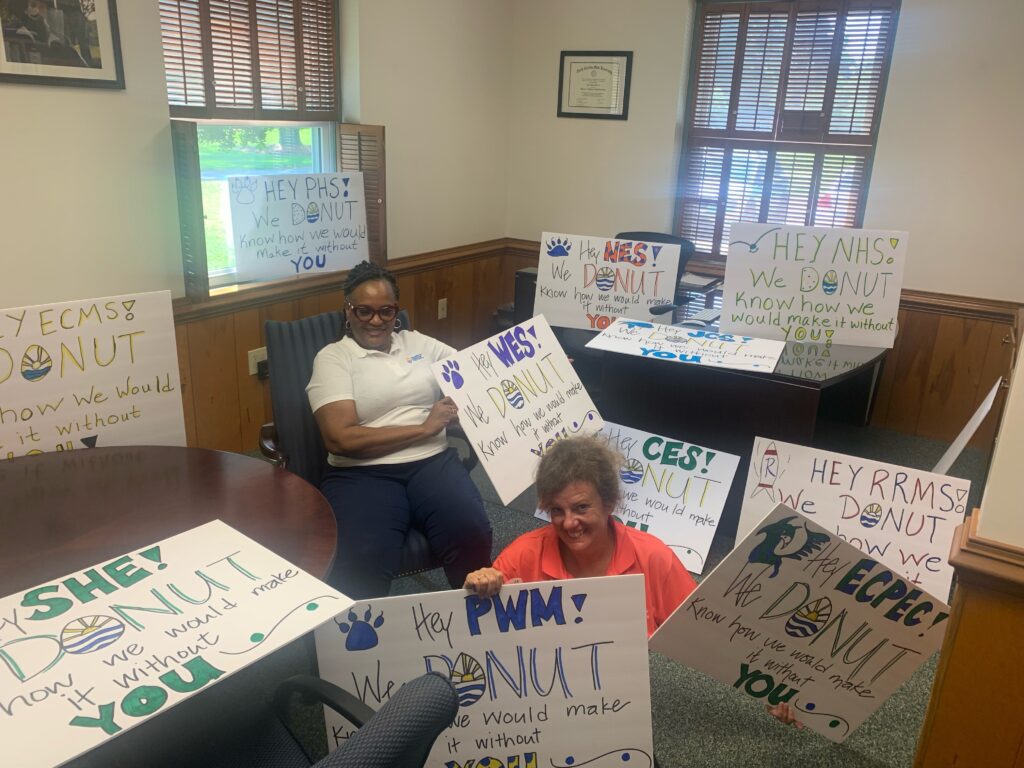
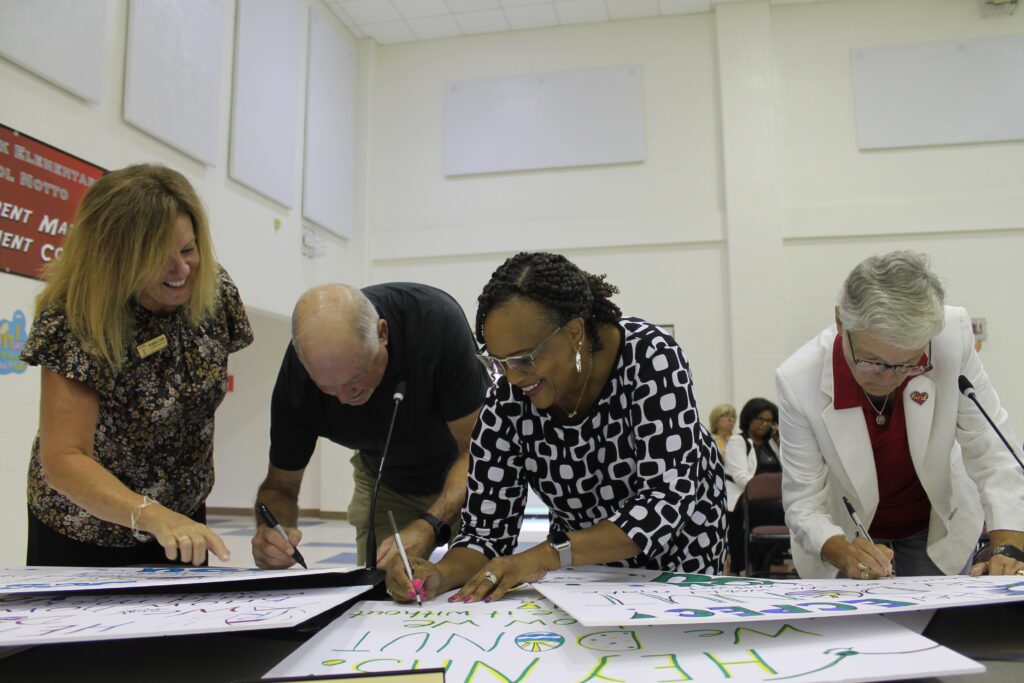

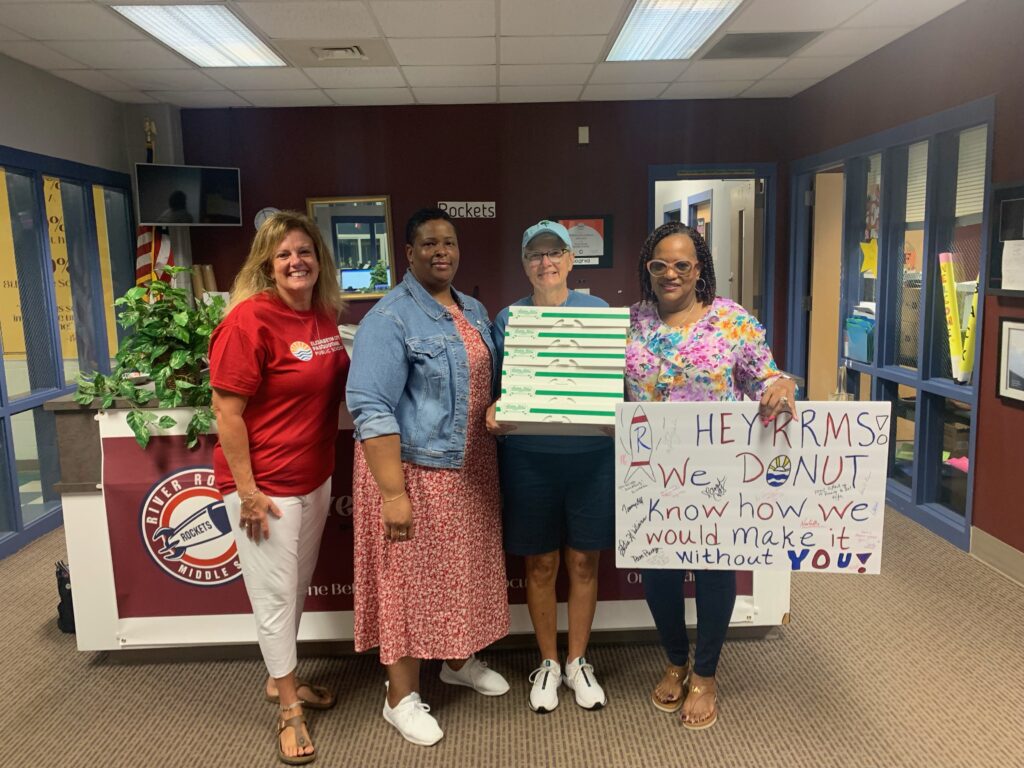
“The community really does care, they really do want to see Elizabeth City grow and prosper, and I think there had been for a while, this feeling of ‘the community’s overlooked, it’s overshadowed,’ but it just doesn’t feel that way anymore,” Parker said as he drove to the fifth of 11 schools he’d visit on the first day of class. “I think some of that energy and momentum has got people just proud of what the community can do.”
That energy and momentum from the community will be essential for another one of Parker’s big ideas — converting a newly closed elementary school into a hub for NC Pre-K.
The county commissioners recently approved $1.6 million to renovate the facilities of Pasquotank Elementary School for its new role. That includes converting an entire wing of the building into classrooms that meet the high standards of NC Pre-K.
Other portions of the building will serve as district offices, as well as flexible spaces that will serve the needs of students, their families, and the community.
“It’s also a moment where I think a lot of the elected officials here and community partners are working together,” Parker said. “I mean, people with different political affiliations, different sides of the aisle so to speak, they do come together on things, particularly schools.”
Stay tuned for more about this project as EdNC follows along in the months to come.
Recommended reading
